Tet dishes are really traps for diabetics
During Tet, Vietnamese people often have a relaxed diet and lifestyle. For normal people, this has little impact on health, but for people with diabetes, small changes in lifestyle or neglecting treatment can cause blood sugar disorders, causing the patient to suffer from serious complications and have to be hospitalized.
Doctor Nguyen Quang Bay, Head of the Department of Endocrinology - Diabetes, Bach Mai Hospital, has advice for diabetic patients to have a happy Tet holiday.

According to this expert, diet has the biggest impact on blood sugar, and Tet dishes are really traps for diabetics because they are all delicious but contain a lot of sugar and starch such as banh chung, xoi gac, candy, jam, apricot...
To avoid increasing blood sugar, diabetics should only eat a moderate amount of banh chung, vermicelli, and rice. Eat more foods high in fiber such as green vegetables, cauliflower, and moderate amounts of bamboo shoots. Avoid eating cakes, candies, chocolate, and jam.
When you find food delicious and want to eat more than usual, you should increase your insulin injection by about 2 units before that meal. Do not eat close to bedtime at night. It is important to eat on time, and enough meals each day to maintain taking blood sugar lowering medication or insulin injections.
According to Dr. Nguyen Quang Bay, people with diabetes should maintain the habit of moving and exercising.
Exercise, along with diet, is considered the cornerstone of any diabetes treatment regimen. However, during Tet, people tend to sit more due to frequent sitting with guests or long meals. Some people also sleep more.
To overcome this, they should not sit for more than 30 minutes, stand up and walk around the house a few times. It is necessary to maintain the habit of doing housework such as cooking, sweeping the floor, taking care of plants. Walk when visiting neighbors in the village or in the city.
Except for the very busy first day, maintain the habit of walking, running... The good thing is that with the modern trend of celebrating Tet, people will not spend too much time cooking and preparing food, but will spend more time resting and traveling .
Also according to the Head of the Department of Endocrinology - Diabetes, Bach Mai Hospital, patients need to inject and take medication fully and on time, both diabetes medication and cardiovascular and blood lipid medications...:
Using diabetes medications adequately and on time is a prerequisite to keeping blood sugar at an acceptable level, thereby avoiding complications of diabetes.
During Tet, people with diabetes often forget to take or inject hypoglycemic medication due to staying up late, waking up late, disrupting meal times, or being too busy playing to remember whether they have taken their medication... but the most common is forgetting to bring medication when going out or wishing a happy new year, or coming home later than expected and not having medication at mealtime.
When should a patient go to the hospital urgently?
To avoid this dangerous mistake, patients should keep their daily routine (sleeping, waking up and eating) on time or just a little later.
Another way is to set a reminder on your phone to take your medication so you don’t forget. Keep all the necessary medications for at least 1 day in a bag and always carry it with you when you leave the house.
The patient's family should also remind them to take their medication on time. Note that not only diabetes medication, but also medications to treat high blood pressure or blood lipids, cardiovascular medications, etc. are also very important and diabetic patients must take them fully and on time.
This person also advised that diabetic patients should measure their blood sugar regularly. Because high blood sugar is the direct and dangerous culprit causing many complications in diabetic patients.
The blood sugar target that all patients need to achieve before meals is from 4.4 - 7.2 mmol/L and after meals is below 10.0 mmol/L.
However, only when blood sugar is very high (usually > 19.5 mmol/L) or very low (< 4.0 mmol/L) will the patient have symptoms such as fatigue, frequent urination, thirst, and when these symptoms appear, the disease is usually already severe.
Therefore, they need to measure capillary blood sugar at least 1-2 times a day, preferably before meals and before taking medication or insulin injections to know if their blood sugar is good and whether they need to increase or decrease the dose of diabetes medication.
In addition, whenever a diabetic patient eats a lot or feels tired, hungry or has digestive problems... they should also measure their blood sugar immediately.
Currently, there are continuous glucose monitors (CGMs) that automatically provide blood glucose results every 1-5 minutes, which is very useful for patients in promptly adjusting their diet during Tet, but the price is still quite expensive.
According to this person, patients need to go to bed on time. Insomnia or sleeping late has been proven to be a factor that causes high and fluctuating blood sugar.
However, the condition of staying up very late and sleeping very late is quite common in everyone, including many people with diabetes.
Worryingly, people who stay up late often have extra meals that increase blood sugar and the next morning when they wake up late, they skip breakfast and do not take their medication.
With the exception of New Year's Eve, people with diabetes should go to bed on time and should not sleep more than 1 hour later than usual the next morning. Note that waking up early will give you the opportunity to experience a happy and warm Tet holiday, instead of spending the 3 days of Tet just hanging around in bed, the kitchen and the dining room.
Follow your doctor to see a doctor or contact your doctor immediately if you feel tired or have a fever. During Tet, hospitals always maintain a team of medical staff on duty to ensure emergency care and medical examination and treatment for people.
Therefore, when the following symptoms appear, diabetic patients need to immediately contact their doctor or be hospitalized for early treatment, such as continuous vomiting for > 6 hours, because there is a high risk of dehydration; High blood sugar > 15.0 mmol/L continuously for 24 hours;
There are symptoms of suspected ketoacidosis such as: vomiting, abdominal pain, rapid breathing and breath that smells like rotten fruit, impaired consciousness; Food poisoning, fever; Feeling very tired but not knowing why and not knowing what to do.
Patients should not have the taboo of going to the hospital during Tet, do not wait until the condition is too severe, coma due to hypoglycemia or hyperglycemia before going to the emergency room.
At that time, not only the patient but also their family will "lose Tet". Bach Mai Hospital is a complete general hospital and all departments have specialist doctors on duty during Tet, so patients can rest assured that when coming to the hospital, they will receive the best consultation and treatment by specialist doctors with experience and high professional qualifications.
Source



![[Photo] Prime Minister Pham Minh Chinh attends the opening ceremony of the National Law Portal](https://vphoto.vietnam.vn/thumb/1200x675/vietnam/resource/IMAGE/2025/5/31/f02ed6288a4340bdb4adf1b2149b9614)
![[Photo] Launching ceremony and drawing of pairs for the "9th TIM CUP Highland Charity Football Tournament"](https://vphoto.vietnam.vn/thumb/1200x675/vietnam/resource/IMAGE/2025/5/31/a4c145af5d1e48c5b48c95116d41a73c)



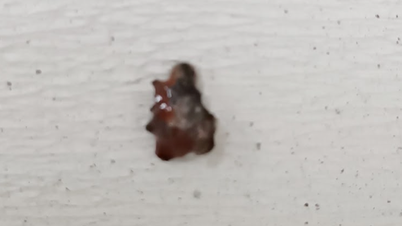

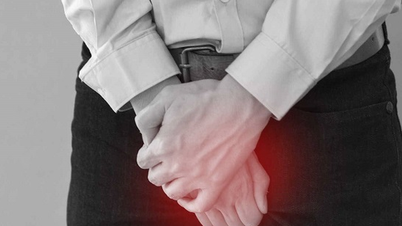



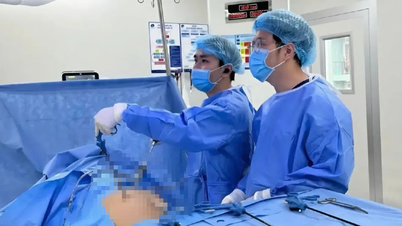


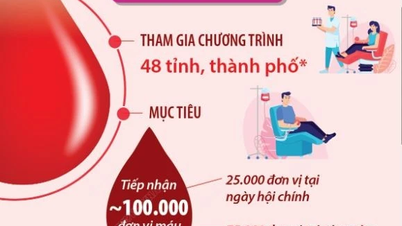











![[Photo] General Secretary To Lam receives Chief of the Central Office of the Lao People's Revolutionary Party](https://vphoto.vietnam.vn/thumb/1200x675/vietnam/resource/IMAGE/2025/5/30/140435f4b39d4599a3d17975dfb444c5)










































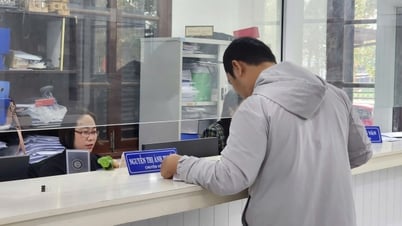
























Comment (0)